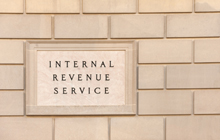Is it easier for the IRS to collect Canadian tax debt?

Lori Bokenfohr and Christopher Steeves of Fasken deconstruct a recent US Tax Court example of considerable multilateral cooperation between the IRS and CRA
IS IT EASIER for the IRS to collect a Canadian tax debt than a U.S. tax debt? Based on an August 1, 2024 U.S. Tax Court decision, the answer may be “Yes”. In fact, according to the decision in question, the IRS is required under the Canada-U.S. Income Tax Treaty (the Treaty) to collect a Canadian tax liability, with no right of the taxpayer to the collection due process (CDP) hearing it might otherwise be entitled to under the Internal Revenue Code.
In Ryckman v. Commissioner, the U.S. Tax Court decided that the taxpayer’s $200,000 Canadian tax liability for the 1993 and 1994 taxation years was equivalent to a finally determined U.S. tax liability. Therefore, the notice of federal tax lien filed by the Internal Revenue Service (IRS) against Ryckman — who was then living in Arizona — was valid. Prior to this, the Canada Revenue Agency (CRA) sent the IRS a mutual collection assistance request (MCAR) under Article XXVI A of the Canada-U.S. Income Tax Treaty. The U.S. competent authority granted the CRA’s request, thus triggering the requirement for the IRS to collect the Canadian revenue claim as it would a U.S. tax assessment for which the taxpayer's right to a CDP hearing had lapsed or been exhausted.
The decision in this case dealt with the taxpayer’s petition to the Tax Court for a CDP hearing, which had been denied by the IRS. The majority determined it lacked jurisdiction to hear the petition, partly because the IRS did not issue a determination letter, which the court said it was not required to do in any event. The court also concluded that the Treaty forecloses the administrative and judicial protections of the CDP statutes when it comes to Canadian revenue claims. Therefore, even if the CDP statutes in principle applied to the IRS’s collection of foreign taxes, the Treaty requires the IRS to enforce an accepted Canadian revenue claim as though the taxpayer has exhausted all CDP rights. Note that an exception to these rules is when the Canadian tax debt arose at a time when an individual taxpayer was a U.S. citizen. Normally the CRA has 10 years to recover a tax debt, but any collection activity can extend this limitation period, and it is also suspended while an individual taxpayer is non-resident.
The decision is an example of the considerable multilateral cooperation that has emerged among tax authorities in recent years when it comes to sharing information and collecting tax debt. The CRA does not have the authority to conduct tax collection activities outside of Canada, but in the case of a U.S. resident, it can effectively do so via an MCAR request under the Treaty, as was done in this case. The requesting state must have a right under its domestic laws to collect the debt, and all administrative and judicial rights of the taxpayer to restrain collection in that state must have lapsed or been exhausted. Canada has similar provisions in certain of its treaties with other countries. It has also entered into tax information exchange agreements with numerous other countries and signed the Multilateral Convention on Mutual Administrative Assistance in Tax Matters, developed by the O.E.C.D. and the Council of Europe. This Convention includes the so-called Common Reporting Standard (CRS). Similar to Canada’s agreement with the U.S. implementing its Foreign Account Tax Compliance Act (F.A.T.C.A.), the CRS requires automatic annual exchange of information among foreign tax authorities, including bank account details provided to such authorities by financial institutions. These new protocols enhance Canada’s capabilities in collecting tax debts through foreign tax authorities — even debts that arose decades earlier, as occurred in this case. And due to the binding effect of the various intergovernmental agreements and general jurisdictional constraints, procedural safeguards that might otherwise apply under the domestic law of the collecting country may not be available to a Canadian tax debtor living outside of Canada.
Lori Bokenfohr is a tax lawyer in Fasken’s Calgary office. Her practice focuses on complex tax matters across a broad spectrum, including business structuring, corporate reorganizations, executive and employee compensation, pre-sale and divestiture planning, business succession planning, immigration/emigration, trusts, and estates. Lori also advises clients in dealings with the Canada Revenue Agency and Ministry of Finance, and on cross-border tax compliance matters.
Christopher Steeves is the Leader of Fasken’s Tax group. Frequently advising Canadian businesses in corporate restructurings and acquisitions, Christopher also assists with income tax aspects of complex domestic and cross-border financings, and financial instruments including derivatives, securities lending and collective investment funds.











(0) Comments